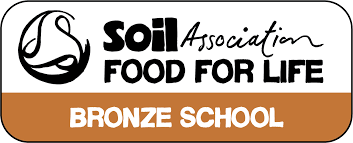Inclusion & SEND
Inclusion and Equal Opportunities Statement
At Orchard Primary School we are proud to provide a safe, stimulating and inclusive learning environment where every member of our community is valued, respected and made to feel welcome within our mainstream setting.
It is our ethos that all children have an equal right to a full and rounded education and to enjoy high quality learning experiences through which they are able to achieve their full potential. We therefore have exceptionally high ambitions for all of our pupils and expect them to participate and achieve in every aspect of school life. Our commitment to equal opportunities is a crucial aspect of our overall commitment to be a fully inclusive school.
Orchard Primary School aims to:
- set suitable learning challenges;
- respond to pupils’ diverse needs; and
- overcome potential barriers to learning for individuals and groups of pupils.
- create an environment in which pupils can develop their sense of self-respect, tolerance and courtesy for others.
We are exceptionally proud of the diversity found within our school and it is our policy that everyone is treated equally regardless of gender, religion, race, nationality, social background and disability.
We believe that successful inclusion should:
- Result in every pupil feeling safe, confident and happy at school.
- See every pupil making the best progress of which they are able and enjoying their time at school - be that in lessons, during their play or lunchtimes or when involved in any of our extended school activities.
- Promote every child's belief in themselves as a learner and valued member of our school community.
Successful inclusive provision at Orchard is seen as the responsibility of the whole school community, permeating all aspects of school life and applicable to all our pupils. We are therefore committed to offering an inclusive curriculum which focuses on the well-being or every child and ensures the best possible progress for all of our pupils whatever their needs or abilities. All our systems and procedures are designed to enable all children to be included fully in the life of the school and we engage a range of strategies to issue challenge at an appropriate level, and provide support to overcome barriers to learning.
It is our responsibility to ensure that pupils with special or additional educational needs have the maximum opportunity to attain and make progress in line with their peers. Accurate assessment of need and carefully planned programmes, which address the root causes of any learning difficulty, are essential ingredients of success for these pupils.
Please see the various ‘Equalities’ policies in the School's Policy Section for more information.
SEN and Inclusion
The school’s SENCO (Special Educational Needs Coordinator) is Mrs Caldwell. The Deputy SENDCO is Miss Farrar. If you need to contact them then please ring the school office on 01332 810078 to arrange an appointment.
Please see the documents below for information regarding Special Educational Needs provision at Orchard Primary:
![]() https://www.orchardprimary.org/policy/send-policy
https://www.orchardprimary.org/policy/send-policy
![]() https://www.orchardprimary.org/policy/single-equalities-policy
https://www.orchardprimary.org/policy/single-equalities-policy
![]() Orchard Primary School Local Offer.pdf
Orchard Primary School Local Offer.pdf
![]() Parent Pamphlet - SEND support Orchard.pdf
Parent Pamphlet - SEND support Orchard.pdf
If a parent is concerned about anything to do with the support we are providing in school for a child with special educational needs, they should, in the first instance, discuss the matter with their child's class teacher and then the school’s SENDCO. Most matters of concern can be dealt with in this way. All teachers work very hard to ensure that each child is happy at school, and is making good progress; they always want to know if there is a problem, so that they can take action before the problem seriously affects the child's progress.
Where a parent feels that a situation has not been resolved through contact with the class teacher, or that their concern is of a sufficiently serious nature, they should make an appointment to discuss it with the Headteacher. The Headteacher considers any such complaint very seriously and investigates each case thoroughly. Most complaints are normally resolved at this stage.
If the school cannot resolve any complaint itself, those concerned should contact the Chair of Governors, Mr Francis Brown.
Accessibility Plan
It is a requirement under the Equality Act 2010 that schools have an Accessibility Plan. The Equality Act 2010 replaced all existing equality legislation, including the Disability Discrimination Act. This means that “schools cannot unlawfully discriminate against pupils on the grounds of sex, race, disability, religion or belief and sexual orientation”.
According to the Equality Act 2010 a person has a disability if:
(a) He or she has a physical or mental impairment, and
(b) The impairment has a substantial and long-term adverse effect on his or her ability to carry out normal day-to-day activities.
The Full Governing Body is responsible for ensuring the implementation and resourcing of the Plan and for reviewing the Plan.
Orchard Primary School is committed to providing an accessible environment which values and includes all pupils, staff, parents and visitors regardless of their education, physical, sensory, social, spiritual, emotional and cultural needs. The school will also remove or minimise any potential barriers to learning allowing all children to achieve and participate fully in school life.
Orchard Primary School will challenge negative attitudes about disability and accessibility; developing a culture of awareness, tolerance and inclusion.
The full plan can be accessed below.
![]() https://www.orchardprimary.org/policy/accessibility-plan
https://www.orchardprimary.org/policy/accessibility-plan
Children in Care
The school recognises the need to support Children in Care. Provision will be made to address individual needs and to work with external agencies.
EAL
All pupils need to feel safe, accepted and valued in order to learn effectively and become successful members of society. For pupils, who are learning English as an Additional Language (EAL), this includes recognising and valuing their home language and background.
English as an Additional Language (EAL) is not considered a Special Education Need. Differentiated work and individual learning opportunities are provided for children who are learning EAL as part of our provision for vulnerable learners.
To find out more about how we cater for EAL learners, please refer to our EAL Policy.
![]() https://www.orchardprimary.org/policy/eal-policy
https://www.orchardprimary.org/policy/eal-policy
Young Carers
Orchard Primary School is committed to supporting young carers to access and maintain their education, to which they are entitled to.
For more information about how we do this, please refer to the policy link below.
![]() https://www.orchardprimary.org/policy/young-carers-policy
https://www.orchardprimary.org/policy/young-carers-policy
Attachment Theory
What is Attachment Disorder?
Attachment disorder (AD) arises when a child under the age of three suffers an early life trauma like abuse, separation from a parent, or illness. They miss out on the love, comfort and nurturing that they need, and fail to form normal loving relationships with their primary carers. This is turn can delay their cognitive and social development, affecting their behaviours and their ability to form relationships later in life.
AD is just one strand of Developmental Trauma Disorder (DTD), which covers all issues and developmental problems resulting from early life trauma, including attachment disorder.
There can be an assumption that AD is only associated with adopted children or children in care. While there is a strong correlation, many other children without this background are affected.
Children with attachment difficulties are often misdiagnosed as many of the characteristics are also seen in conditions like autism, ODD and ADHD.
The long-term impact is hard to predict as children have different levels of resilience to trauma in the womb or neglect after birth. However, the overall prognosis is good; children can fully recover from AD with the correct care and attention.
Causes of Attachment Disorder
If, during the first three years of their life, any of the following occur, children are at risk of attachment disorders:
- Mother smoked, drank alcohol or took drugs during pregnancy.
- They are the result of an unwanted pregnancy.
- They suffer physical, emotional or sexual abuse.
- They have been neglected. This can be anything from not having a nappy changed when it is dirty to not being fed when hungry.
- Their primary carer suffers from depression.
- They were separated from their primary carer through the illness or death of a parent, or through being taken into care.
- They suffer from persistent and chronic pain.
- Their primary carers split up or divorce.
- Inconsistent parenting.
- They are raised in an emotionally empty or negative/abusive environment.
Signs of Attachment Disorder
Children who have experienced early trauma develop strategies or behaviours to help them to survive. These may include:
- Lack of expectation of care and comfort, known as the inhibited form of Reactive Attachment Disorder (RAD)
- Inappropriately affectionate and familiar towards strangers, known as the disinhibited form of Reactive Attachment Disorder (RAD)
- Become distressed when separated from carer but also resist contact when the carer returns. Known as anxious-ambivalent attachment.
- Poor eye contact.
- Difficulty showing affection. An aversion to touch and physical affection.
- Overly demanding or clingy.
- Lack of cause/effect thinking.
- Problems controlling and expressing anger, sometimes violent.
- A need to be in control.
- Erratic eating habits.
- Failure to show remorse or regret after behaving badly.
- Abnormally sociable or superficially charming.
- Tell lies or steal
- Ask persistent nonsense questions or incessant chatter
- Pseudo maturity
- Low self-esteem
How do we support pupils with attachment difficulties Orchard?
At Orchard, we recognise that an open mind and an empathic approach are essential for helping these children.
We appreciate that accepting that the child has a need they are trying to convey, requires patience.
As well as having ‘positive’ behaviour management policies and procedures, we also endeavour to implement effective provision and whole school practice and beliefs in order to provide the stability the child needs to move from a state where they perceive school to be unsafe to one of safety; only then can the child begin to build the skills to learn more effectively.
The provision that we can offer is wide-ranging but includes the following:
- Staff listen to children, are curious and empathetic and have a desire to do what they can to help a child having a tough time
- Effective tracking of behaviour to help identify patterns and changes in order for support to be given
- Structure, routines and boundaries for all pupils and adaptations to these to meet the individual needs
- Predictability of people and situations
- Planned support for transitions and changes
- The use of PACE when dealing with children (Playfulness, Acceptance, Curiosity and Empathy)
- Seeing the child and not the behaviour
- Being reflective of situations and looking at what the adult and system could have done differently and then make the changes
- Providing pupils who are struggling with attachment disorders the opportunity to work through any behavioural difficulties with an adult in a safe environment (“time in” opposed to a “time out”)
- Dedicated staff who help the child to understand their emotions through restorative questions
Resources
![]() https://www.mentallyhealthyschools.org.uk/resources/attachment-aware-schools/
https://www.mentallyhealthyschools.org.uk/resources/attachment-aware-schools/
![]() https://researched.org.uk/attachment-theory-what-do-teachers-need-to-know/
https://researched.org.uk/attachment-theory-what-do-teachers-need-to-know/
![]() https://www.mentallyhealthyschools.org.uk/mental-health-needs/
https://www.mentallyhealthyschools.org.uk/mental-health-needs/
Useful Documents To Help Manage Attachment Disorder
![]() Attachment-Classroom-Strategies-Workshop-Presentation.pdf
Attachment-Classroom-Strategies-Workshop-Presentation.pdf
![]() Bath-Spa-Uni-Attachment-Training-Powerpoint.pdf
Bath-Spa-Uni-Attachment-Training-Powerpoint.pdf
![]() My-Chimp-Explains.pdf
My-Chimp-Explains.pdf







